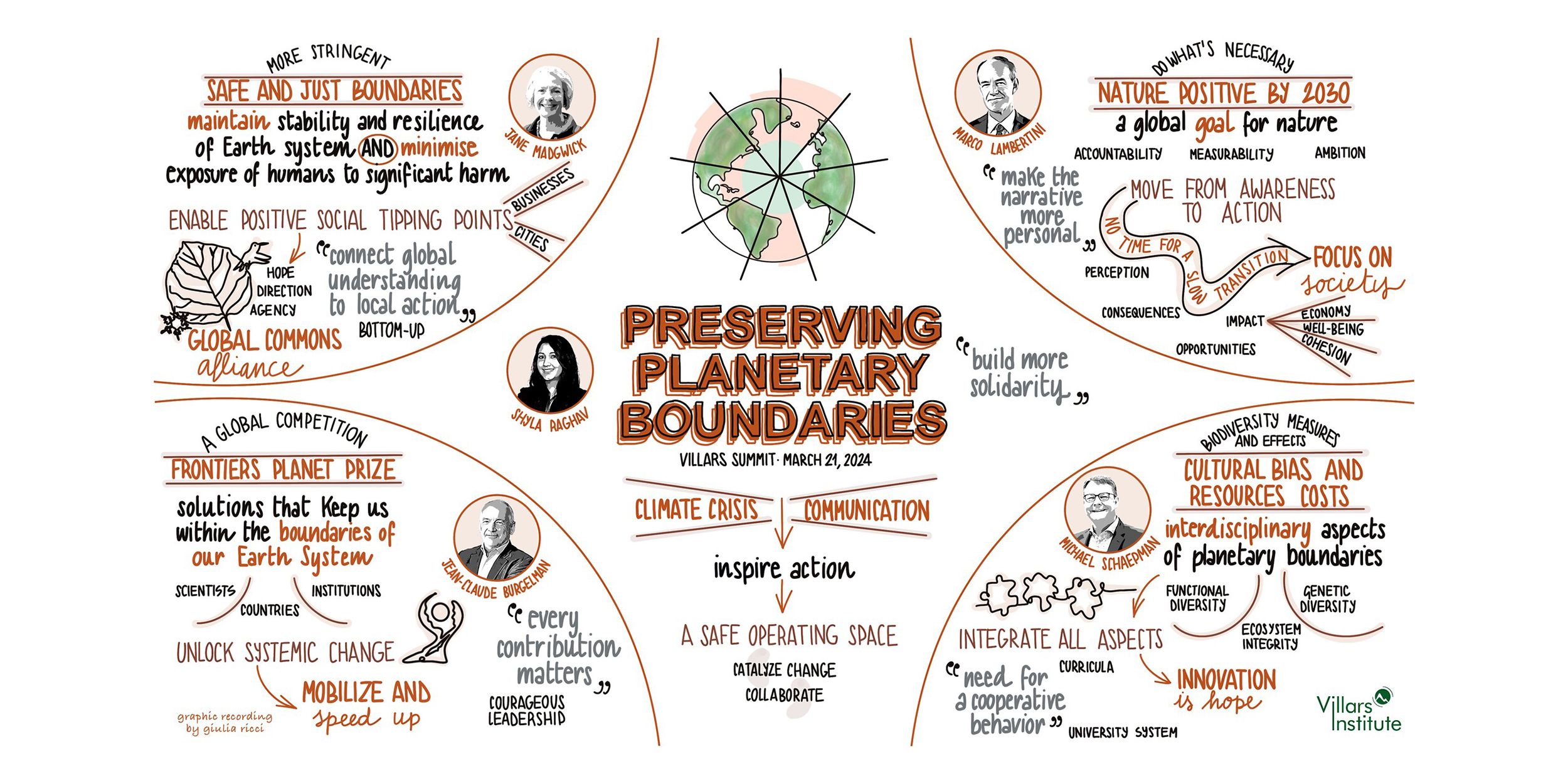The Ideas
This discussion was not only about how we measure planetary boundaries, but also the societal changes needed to maintain them. One expert summed up the session by saying that although our planet has limits, there are no limits to human innovation.
There was a sense of hope but also frustration throughout. One expert expressed frustration that no real action is being taken and that the world is struggling to move forward, despite the fact that science has never been clearer about the reality of climate issues and awareness is so high. They expressed frustration that despite the clarity of the science that we are reaching tipping points as never before, environmental legislation is being cut back and we seem to be going backwards, not forwards. All experts seemed to agree that for society to change, it must want to change. Putting pressure on society was suggested as a solution to inaction, but the paralysing effect of fear, confusion, fatalism and cynicism was also considered.
When it came to the planetary boundaries themselves, experts highlighted both their strengths and limitations. It was made clear that while they give us clear guidance on where we need to be, they also carry certain biases and neglect certain aspects of the climate crisis. One of the most memorable moments of the discussion was when participants were asked to draw a leaf. Many participants drew different types of leaf, which was used to show us the biases involved in measuring biodiversity, as different cultures have different ideas of what biodiversity is. Therefore, any algorithm or formula used to measure biodiversity will be biased in some way. Speaking of definitions, one expert enlightened participants by giving a clear explanation of what nature-positive means. They made it clear that it wasn't a buzzword like "environmentally friendly", but meant "halting and reversing the loss of biodiversity and ensuring its full recovery". Another expert presented a new way of measuring biodiversity, using an imaging spectrometer that can measure both functional and genetic diversity, as a better way of measuring the planetary boundary of biosphere integrity. In a point that was later rebutted, one expert referred to Albert Einstein's quote, "If I were given one hour to save the planet, I would spend 59 minutes defining the problem and one minute resolving it", to highlight the importance of defining and truly understanding the problem through the planetary boundaries. One criticism of the planetary boundaries was that they neglected the social aspects and boundaries, which would help identify social tipping points and ensure a just transition.
The human side was where many of the experts saw hope. It was argued that for change to happen, it is not necessary for everyone to be on board, as the tipping point for societal change is around 25%. For this reason, the expert argued that the climate crisis is a communication crisis. Another expert, when speaking of the Global Commons Alliance, highlighted the potential the planetary boundaries have in inciting change. By looking at all natural systems, we can stimulate local action, do a health check on our planetary systems, and integrate nature into economies. It was later pointed out that local communities are natural systems thinkers, as they don't see a separation between biodiversity loss and other issues such as water scarcity or poverty. The Frontiers Planet Prize was presented as another way of catalysing change. It brings together thousands of universities and awards national and international prizes for breakthroughs in sustainability science. The prize aims to inspire hope and encourage innovation. Finally, the closing experts called for the courageous and visionary leadership they believe is needed to lead people into a better future.
In summary, the necessity of addressing planetary boundaries and fostering societal change to safeguard them was underscored, recognizing both hope for innovation and frustration over inertia. Despite limitations, experts highlighted the potential of effective communication, community engagement and visionary leadership to catalyse meaningful action towards sustainability.



